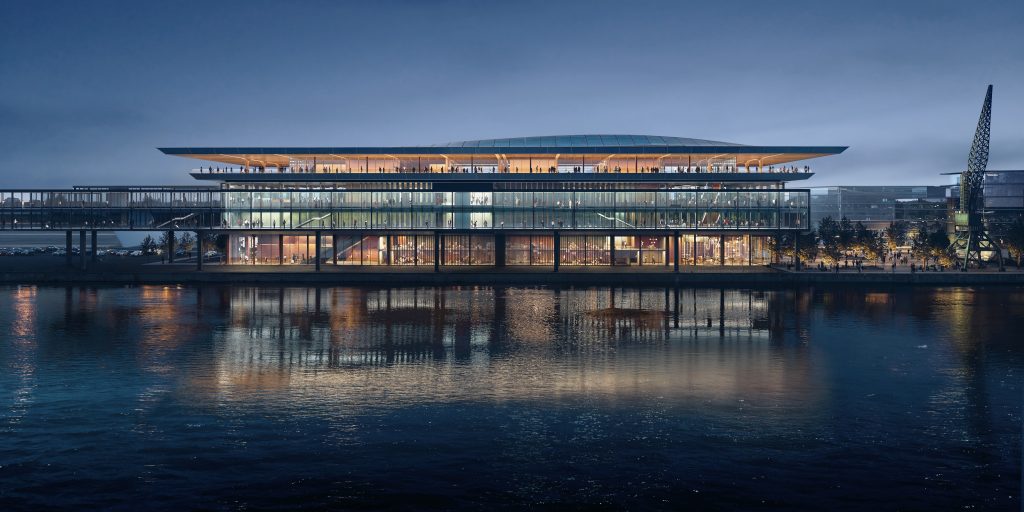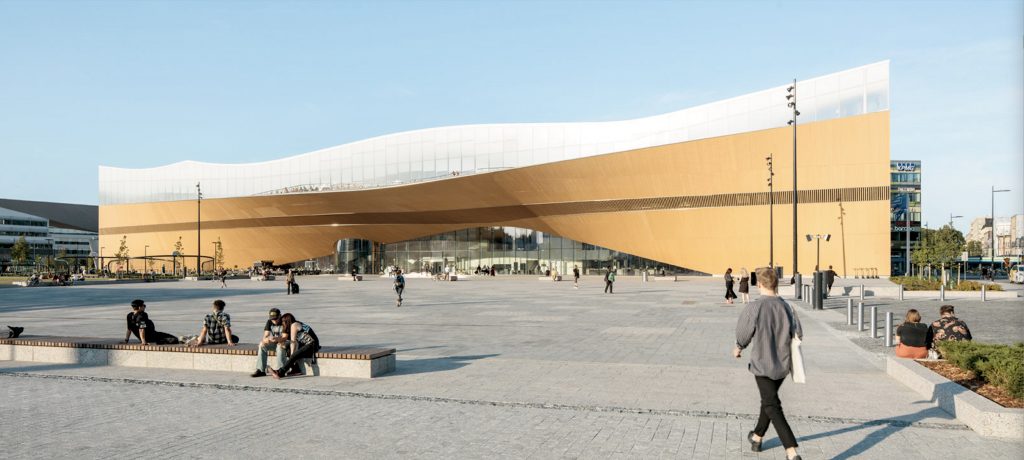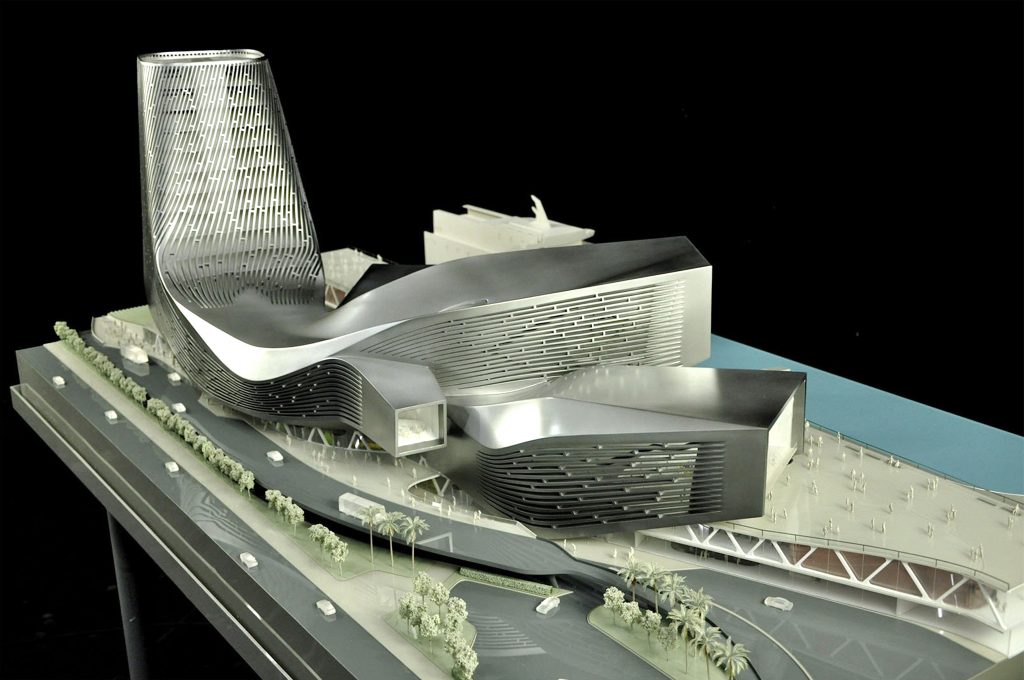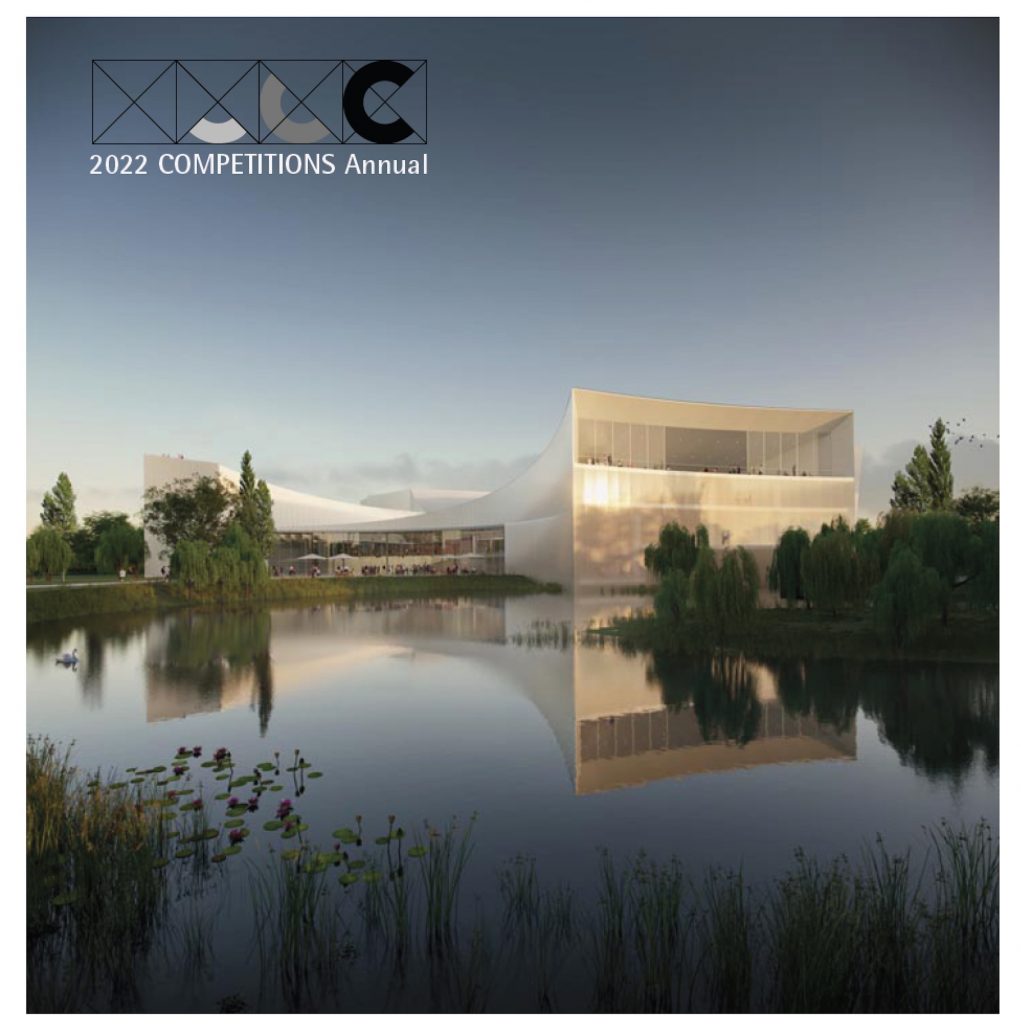Interview: Allison Williams (Summer 2009)August Wilson Center for African American Culture, Pittsburgh, PA (Competition 2003, competion 2009) COMPETITIONS: When did you first decide you wanted to become an architect? Was it a sudden revelation? ALLISON WILLIAMS: My undergraduate degree from UC Berkeley is in the practice of art. It would be wrong to say that I wanted to be an architect from the beginning; but frustration with the practice of art not really feeling that it was going to be a career-based thing for me. At the time, in the late 60s and early 70s, I was surrounded by some really promising artists. For me there was also the [question] of what the art was going to be used for — how do you know exactly whether something is working or not, whether it’s interesting or not, whether it has a sort of bigger platform of use or service? I grew up in a home which was very visually based. My father was not an architect by the strict terms of the AIA; but he was an engineer-urban designer type—he built our house in Cleveland. So architecture was part of my life from the beginning. My mother, who was a journalist, was very artistic. So it came together, but rather as a graduate degree at Berkeley. COMPETITIONS: I guess Yung-Ho Chang (previous Chair at MIT) wasn’t at Berkeley when you were there. But he was so good at rendering, that everyone sort of waited to see what he was doing before they got started.
AW: When I started there, I was the only one in my class of thirty who knew how to draw or knew how to express things. We had all kinds of backgrounds in the masters program at Berkeley, psychologists, structural engineers—you name it in terms of their background. They were very unfamiliar with the tools of architectural or life drawing.
COMPETITIONS: Was there a particular person or persons along the way who helped shape your ideas on architecture?
AW: Beyond my father, there were some inspirational people. People who really taught me the most are those who think of architecture as series of problems you need to solve. Gerry McCue, who later became the dean at Harvard was one. If I was going to identify the most inspirational architect, it would be Le Corbusier. I don’t know if it’s just a generational thing, or just total admiration. It probably has more to do with more time in Paris and France than any place other than places I have lived. I have probably visited almost every work by Corbusier.
During my time at Skidmore, I would be remiss if I didn’t mention Marc Goldstein, who was an incredible mentor. I benefitted in my experience and success at the office because of working with him. When he became ill, he looked to me to just take it and run.
COMPETITIONS: What was the first competition you ever entered? And the most memorable?
Login to see more
(login problems? E: scollyer@competitions.org or http://competitions.org/contact/) |

1st Place: Zaha Hadid Architects – night view from river – Render by Negativ
Arriving to board a ferry boat or cruise ship used to be a rather mundane experience. If you had luggage, you might be able to drop it off upon boarding, assuming that the boarding operation was sophisticated enough. In any case, the arrival experience was nothing to look forward to. I recall boarding the SS United States for a trip to Europe in the late 1950s. Arriving at the pier in New York, the only thought any traveler had was to board that ocean liner as soon as possible, find one’s cabin, and start exploring. If you were in New York City and arriving early, a nearby restaurant or cafe would be your best bet while passing time before boarding. Read more… Young Architects in Competitions When Competitions and a New Generation of Ideas Elevate Architectural Quality 
by Jean-Pierre Chupin and G. Stanley Collyer
published by Potential Architecture Books, Montreal, Canada 2020
271 illustrations in color and black & white
Available in PDF and eBook formats
ISBN 9781988962047
Wwhat do the Vietnam Memorial, the St. Louis Arch, and the Sydney Opera House have in common? These world renowned landmarks were all designed by architects under the age of 40, and in each case they were selected through open competitions. At their best, design competitions can provide a singular opportunity for young and unknown architects to make their mark on the built environment and launch productive, fruitful careers. But what happens when design competitions are engineered to favor the established and experienced practitioners from the very outset? This comprehensive new book written by Jean-Pierre Chupin (Canadian Competitions Catalogue) and Stanley Collyer (COMPETITIONS) highlights for the crucial role competitions have played in fostering the careers of young architects, and makes an argument against the trend of invited competitions and RFQs. The authors take an in-depth look at past competitions won by young architects and planners, and survey the state of competitions through the world on a region by region basis. The end result is a compelling argument for an inclusive approach to conducting international design competitions. Download Young Architects in Competitions for free at the following link: https://crc.umontreal.ca/en/publications-libre-acces/ 
Helsinki Central Library, by ALA Architects (2012-2018)
The world has experienced a limited number of open competitions over the past three decades, but even with diminishing numbers, some stand out among projects in their categories that can’t be ignored for the high quality and degree of creativity they revealed. Included among those are several invited competitions that were extraordinary in their efforts to explore new avenues of institutional and museum design. Some might ask why the Vietnam Memorial is not mentioned here. Only included in our list are competitions that were covered by us, beginning in 1990 with COMPETITIONS magazine to the present day. As for what category a project under construction (Science Island), might belong to or fundraising still in progress (San Jose’s Urban Confluence or the Cold War Memorial competition, Wisconsin), we would classify the former as “built” and wait and see what happens with the latter—keeping our fingers crossed for a positive outcome. Read More… 
2023 Teaching and Innovation Farm Lab Graduate Student Honor Award by USC (aerial view)
Architecture at Zero competitions, which focus on the theme, Design Competition for Decarbonization, Equity and Resilience in California, have been supported by numerous California utilities such as Southern California Edison, PG&E, SoCAl Gas, etc., who have recognized the need for better climate solutions in that state as well as globally. Until recently, most of these competitions were based on an ideas only format, with few expectations that any of the winning designs would actually be realized. The anticipated realization of the 2022 and 2023 competitions suggests that some clients are taking these ideas seriously enough to go ahead with realization. Read more… 
RUR model perspective – ©RUR
New Kaohsiung Port and Cruise Terminal, Taiwan (2011-2020)
Reiser+Umemoto RUR Architecture PC/ Jesse Reiser – U.S.A.
with
Fei & Cheng Associates/Philip T.C. Fei – R.O.C. (Tendener)
This was probably the last international open competition result that was built in Taiwan. A later competition for the Keelung Harbor Service Building Competition, won by Neil Denari of the U.S., the result of a shortlisting procedure, was not built. The fact that the project by RUR was eventually completed—the result of the RUR/Fei & Cheng’s winning entry there—certainly goes back to the collaborative role of those to firms in winning the 2008 Taipei Pop Music Center competition, a collaboration that should not be underestimated in setting the stage for this competition Read more… 
Winning entry ©Herzog de Meuron
In visiting any museum, one might wonder what important works of art are out of view in storage, possibly not considered high profile enough to see the light of day? In Korea, an answer to this question is in the making. It can come as no surprise that museums are running out of storage space. This is not just the case with long established “western” museums, but elsewhere throughout the world as well. In Seoul, South Korea, such an issue has been addressed by planning for a new kind of storage facility, the Seouipul Open Storage Museum. The new institution will house artworks and artifacts of three major museums in Seoul: the Seoul Museum of Modern Art, the Seoul Museum of History, and the Seoul Museum of Craft Art.
Read more… |


































